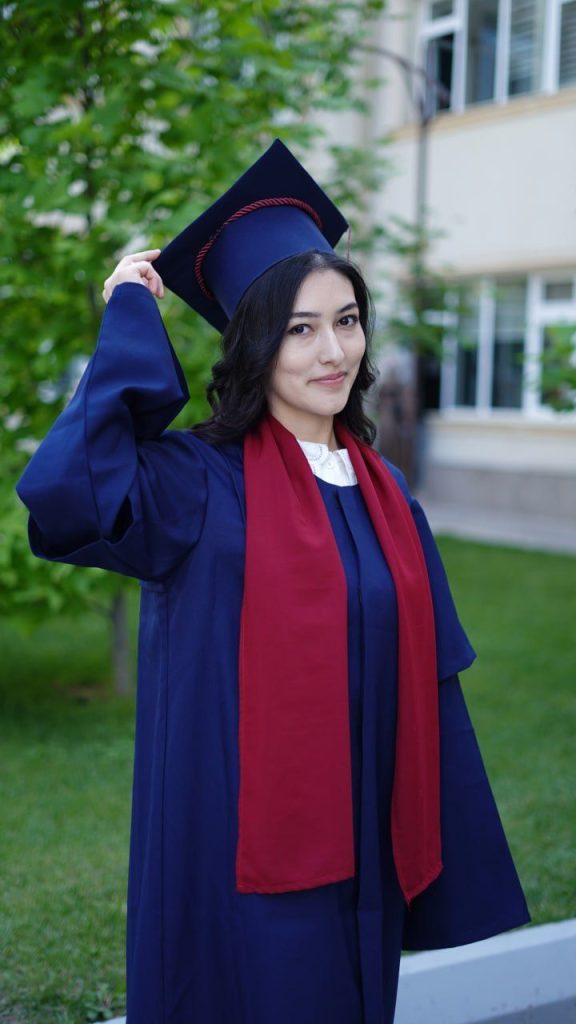
A Letter to O‘tkir Hoshimov
“Life is like a storeroom with a locked door.”
Assalomu alaykum, dear teacher.
In the vast kingdom called literature, where I still wander without having found my true place, I have gathered all my humility and courage to call you my mentor.
It was through your books that I first felt the truth — how vividly and honestly life’s scenes could be reflected in art.
When I read your story “The Affairs of the World” (“Dunyoning ishlari”), I felt as though my own mother — her kindness, her wisdom, her entire life’s path — had found its way into your book. It seemed to me that this story was written about my mother.
Your novel “Between Two Doors” (“Ikki eshik orasi”) — I first read it when I was fifteen, and then three more times in later years. Not because I didn’t understand it, but because my soul needed it, because the heart itself longs for such a book.
Each time I read it, there are three moments that make me cry:
When Robiya marries her uncle Shomurod, when Kimsan meets a heroic death, and when Munavvar’s life ends in such sorrow.
There are, in truth, countless moments in that book that tear at my heart.
While reading it, I even found myself upset with you — why, dear teacher, why did you give poor Robiya such a bitter fate? It pains me deeply. She loved Kimsan all her life, she waited for him. Yet in the end — by fate’s decree and her mother’s will — for the sake of her little son Muzaffar, she was forced to marry her uncle, the same man who once told her:
> “Don’t hold your wedding without me — I’ll come and arrange everything myself.”
And Kimsan… even in his final moments of life, he said,
> “At least one of you, I will take with me,”
and drowned with the fascist in the river.
Even years later, the shadow of that war fell upon Muzaffar and Munavvar’s marriage, breaking hearts anew.
Every one of your books draws me into their world — I live beside your characters, breathe their emotions, and feel their joys and sorrows as my own.
I am your daughter in spirit — one who dreams of writing works that live forever, and who will always remember you with pride.
With love and gratitude,
Your student,
Oynur Azimova
The Need for Creativity
Creativity — it is like an addiction, a beautiful yet incurable illness.
Whoever is struck by it lives a lifetime battling the fever of inspiration. In the end, such a person either creates beauty — or serves discoveries that bring both greatness and tragedy to humankind (like the invention of the atomic bomb).
Every human being, in some way, is sensitive to the world around them — to the living and the lifeless — they observe, reflect, and are inspired. Each person possesses some form of creative ability.
But only through talent and nurturing can that ability be developed and brought to light.
Human nature itself is creative. Everyone finds rest in some form of creation — some in drawing, others in composing music or conducting research that nourishes the soul.
So, what gives birth to creativity?
1. Healing:
When a person falls into depression, engaging in their favorite form of art or creation helps them heal and find balance again.
2. Broadening worldview:
Those who create regularly have more active minds, think independently, and are capable of making their own decisions.
3. Fame:
A desire to be remembered as a remarkable individual — to leave one’s mark in the memory of humankind.
4. Material need:
Some people sell their creative works or create for financial reasons.
Whatever the motivation, creation is a necessity — it is the voice of the human soul searching for meaning, beauty, and immortality.
— Oynur Azimova
Oynur Azimova A’zam qizi was born on March 11, 2003, in Kitob district of Kashkadarya region. In 2021, she graduated from Secondary School No. 65 of the district with excellent marks and a silver medal. The same year, she was admitted to the University of Journalism and Mass Communications of Uzbekistan.
From a young age, inspired by her mother, Oygul, she developed a love for literature and poetry. Her creative works have been published in various regional and national newspapers and journals. The young poet’s first collection of poems, titled “My Talent — My Title” (“IQTIDORIM — UNVONIM”), has been published and warmly received by readers.
